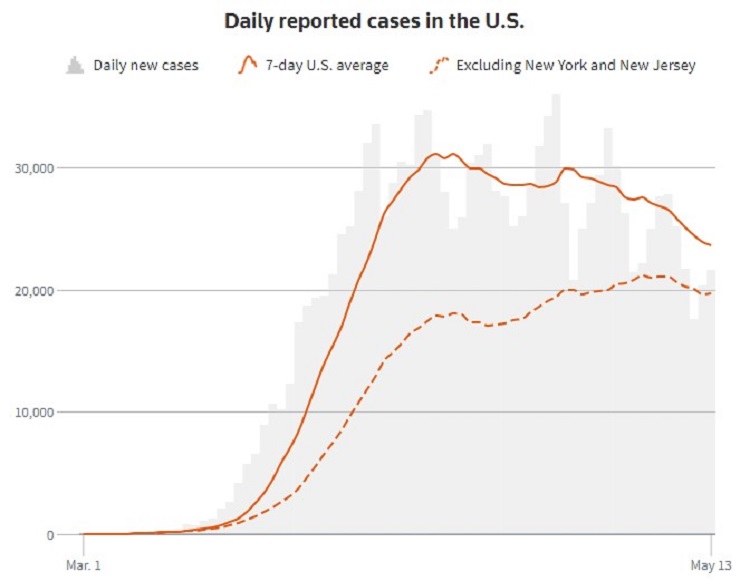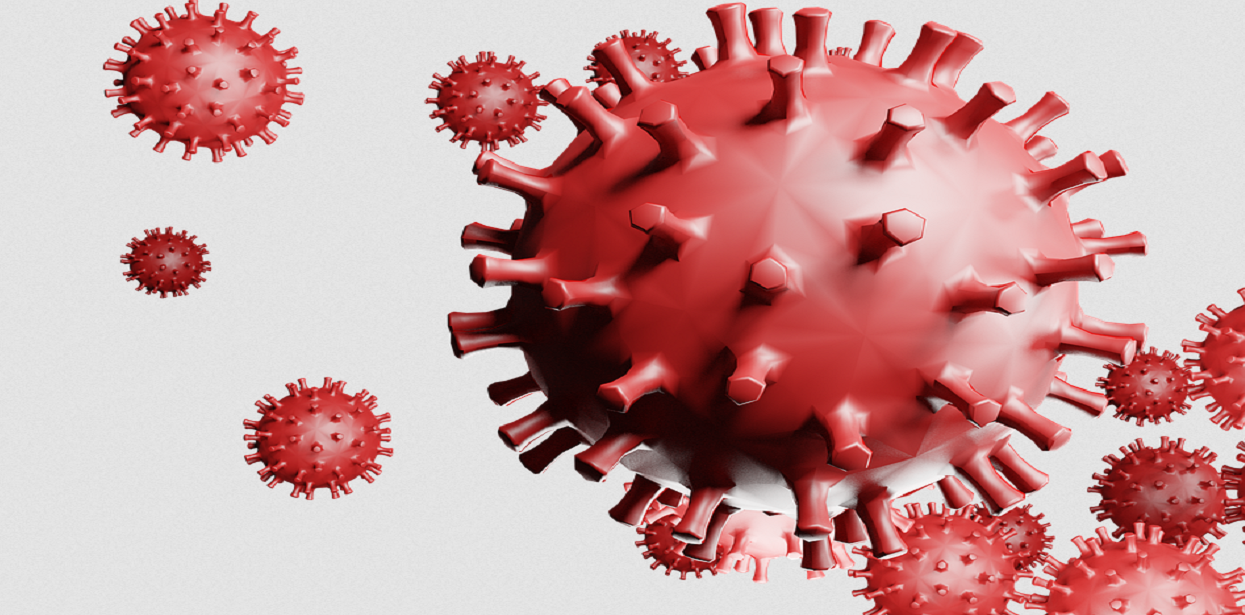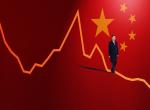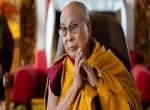Economic
China refuses to give up developing country status in WTO
Despite the Trump administration's strong protests against China's unfair trading advantages in the World Trade Organization (WTO), the Chinese representative to the Geneva-based trade body insisted on May 12 that the East Asian superpower would not give up its status as a "developing country." Following the U.S. government's decision to uplift China's country status to "developed" in February and cancel some of its trade benefits, U.S. President Donald Trump has regularly criticized the WTO for classifying China as a developing country. With the status, Beijing has been able to levy high tariffs on U.S. and European imports while enjoying low duties on its own exports. During the same conference, former U.S. trade official Wendy Cutler pointed out that China's willingness to give up developing country status would benefit China in many ways. She added that such a move would help ease tensions between China and the U.S. as well as protect the WTO's credibility, reported Radio Free Asia.
Fiscal stimulus ‘worth it’ to tackle pandemic, says Fed chief
Jay Powell, the chair of the Federal Reserve, has said additional fiscal stimulus may be “worth it” to shield the US economy from long-term damage because of the pandemic, as Angel Gurría, OECD secretary-general, warned that rising debt levels would “come back to haunt us”. “Right now there is no doubt about it — we should throw the rule book out — because we have the healthcare issues to deal with and if we do this now the overall cost will be lower — but in the end there will be consequences,” Mr Gurria said. Mr Powell justified the need for further policy action in the US based on evidence that “deeper and longer recessions” tended to leave “lasting damage to the productive capacity of the economy” — and the US risked an “extended period of low productivity growth and stagnant incomes”. “We ought to do what we can to avoid these outcomes, and that may require additional policy measures. At the Fed, we will continue to use our tools to their fullest until the crisis has passed and the economic recovery is well under way,” he said.
U.S. Says It Will Trust Small Business Owners When They Say They Need Loans
The Trump administration says it will presume borrowers have met the certification requirements for forgivable small-business loans under $2 million in the Paycheck Protection Program, in a move aimed at easing borrower fears that their loans won’t be forgiven. The “safe harbour” announcement from the Small Business Administration on May 13 followed concerns by business owners’ about running afoul of the program’s rules, which have changed since the PPP opened for applications. “Any borrower that, together with its affiliates, received PPP loans with an original principal amount of less than $2 million will be deemed to have made the required certification concerning the necessity of the loan request in good faith,” the SBA said in a “frequently asked questions” document on its website. Loans of less than $2 million account for 99% of the loans in the program, Senate Small Business Committee Chairman Marco Rubio said.
Tech capabilities drive Asia's exemplary quarantine: McKinsey
In a report issued May 13, McKinsey noted early detection of infections, and identification of routes taken by patients helped contain the virus, and this was enabled by digitization and data deployment at scale in collaboration between the public and private sectors in Asia. In Korea, contact-tracing information is shared with the public through apps such as Corona Map and Corona 100m, enabling people to avoid areas where they are more likely to be infected. The government of Singapore launched a mobile app, Trace Together, which uses Bluetooth, to record when people have been close to one another and alert them if they have been near a person known to be infected with the virus. In China, artificial intelligence (AI) specialist Sense Time deployed contactless temperature-detection equipment to screen up to 10 individuals per second in subway stations, schools and public centres in Beijing, Shanghai and Shenzhen. Technology was also used to redeploy labour when needed. Alibaba's grocery delivery subsidiary hired workers from restaurants and retail outlets that were shut down. The company simplified operational procedures so that new workers only needed two hours of training.
In a First, Renewable Energy Is Poised to Eclipse Coal in U.S.
The United States is on track to produce more electricity this year from renewable power than from coal for the first time on record, new government projections show, a transformation partly driven by the coronavirus pandemic, with profound implications in the fight against climate change. It is a milestone that seemed all but unthinkable a decade ago, when coal was so dominant that it provided nearly half the nation’s electricity. And it comes despite the Trump administration’s three-year push to try to revive the ailing industry by weakening pollution rules on coal-burning power plants. As factories, retailers, restaurants and office buildings have shut down nationwide to slow the spread of the coronavirus; demand for electricity has fallen sharply. And, because coal plants often cost more to operate than gas plants or renewables, many utilities are cutting back on coal power first in response. The cost of building large wind farms has declined more than 40 percent, while solar costs have dropped more than 80 percent. And the price of natural gas, a cleaner-burning alternative to coal, has fallen to historic lows as a result of the fracking boom.
World's biggest shipper expects 25% drop in container demand
The world's biggest shipping company, Denmark's A.P. Moller-Maersk, said on May 13 that it expects its transport volumes to drop by up to 25% in the second quarter as the world economy slides toward recession. CEO SoerenSkou said that the group was "strongly positioned to weather the storm" but that the COVID-19 crisis had had "a significant impact" on its activities. The group presented its first quarter results, which showed revenue edged down to $9.6 billion from $9.5 billion for the same period last year. It booked a profit of $209 million, up from a loss of $656 million.In a statement, the group said its full-year outlook contained "high uncertainties," and the global container demand "is expected to contract in 2020 due to COVID-19." It previously was for growth of 1-3%.
Donald Trump extends executive order aimed at Huawei to guard US telecoms supply chain
President Donald Trump on May 13 extended for another year an executive order signed in May 2019 declaring a national emergency and barring U.S. companies from using telecommunications equipment made by firms posing a national security risk. The order invoked the International Emergency Economic Powers Act, which gives the president the authority to regulate commerce in response to a national emergency that threatens the United States. U.S. lawmakers said Trump's 2019 order was aimed squarely at Chinese companies like Huawei Technologies Co and ZTE Corp. The U.S. Commerce Department is also expected to extend again a license, set to expire on May 15, allowing U.S. companies to keep doing business with Huawei, a person briefed on the matter said. The department has issued a series of extensions of the temporary license and previously extended it until April 1. Huawei, the second-largest maker of smartphones, is also a major telecoms equipment company that provides 5G network technology.
Businesses call for swift passage of telemedicine bill
According to the Korea Chamber of Commerce & Industry (KCCI), bills concerning digitization include ways to set up infrastructure and foster industries that do not involve in-person transactions. Chief among them is abolishing a government-certified personal identity verification system, a time-consuming and complex process long criticized for its inefficiency by industry officials and general users at large. The bill instead seeks to introduce other means of identity verification including a "digital signature," which the organization considers a more effective way to manage personal information online. "The absurd and out-dated system is the single most significant roadblock to the development of new certification technologies," KCCI Corporate Policy Director Kim Hyun-soo said. Also included is allowing telemedicine on a limited yet regular basis, a decades-long government effort repeatedly frustrated due to a fierce backlash from powerful interest groups ― most notably doctors. "The virus pandemic clearly illustrated the efficacy and efficiency of digital technology-based consultations, treatment and diagnosis. Telemedicine is in place in many advanced countries and it is high time that the bill first introduced in the 17th Assembly is passed," Kim said.
Strategic
Soaring Prices, Rotting Crops: ‘FoodCrisis with lots of Food’
The coronavirus pandemic hit the world at a time of plentiful harvests and ample food reserves. Yet a cascade of protectionist restrictions, transport disruptions and processing breakdowns has dislocated the global food supply and put the planet’s most vulnerable regions in particular peril. The UN’s World Food Program has warned that up to three dozen nations could face famines by the end of the year, potentially pushing an additional 130 million people to the brink of starvation. “You can have a food crisis with lots of food. That’s the situation we’re in,” said Abdolreza Abbassian, a senior economist at the Food and Agriculture Organization of the United Nations, or FAO. Food shortages have caused political upheavals throughout human history. In the years after the 2008 financial crisis, a surge in food prices world-wide helped unleash a wave of turmoil and insurgencies in many parts of the Middle East and Africa. The Arab Spring’s series of rebellions was in part caused by a Tunisian vegetable seller setting himself on fire in 2010. Today, many governments worry that breakdowns of the food supply could inspire similar upheaval.
WHO’s chief scientist offers bleak assessment of challenges ahead
It will be four or five years before Covid-19 is under control, the World Health Organization’s chief scientist predicted on Wednesday, in a bleak assessment of the difficulties that lie ahead. Many factors will determine how long and to what extent the virus remains a threat, including whether it mutates, what containment measures are put in place and whether an effective vaccine is developed, Soumya Swaminathan told the FT’s Global Boardroom digital conference. “I would say in a four to five-year timeframe we could be looking at controlling this,” she said, adding there was “no crystal ball” and the pandemic could “potentially get worse”. “A vaccine seems for now the best way out, but there were lots of ifs and buts about its efficacy and safety, as well as its production and equitable distribution”, she said. A vaccine could also stop working if the virus changed, she added. “Only smallpox has been eliminated and eradicated as a human disease,” said Prof Piot who is himself recovering from the virus. Countries should be thinking in terms of years not months, he said.
Where coronavirus cases are rising in the United States
Nearly all 50 U.S. states have begun to allow some businesses to reopen and residents to move more freely, but only 14 states have met the federal government’s guidelines for lifting measures aimed at fighting the pandemic, according to a Reuters’ analysis. Florida, Hawaii, Idaho, Louisiana, Michigan, Montana, Nevada, New York and Pennsylvania have reported four to five weeks of declines in new cases, according to a Reuters’ analysis of data from the COVID Tracking Project, a volunteer-run effort to track the outbreak.Arkansas, Colorado, Massachusetts, New Jersey and Rhode Island have reported declines for two weeks, the analysis showed. Nineteen of the states with at least 5,000 reported cases of COVID-19 are seeing infections rise, Reuters found. The main reason that new cases are down nationally is due to 33% declines in both New York and New Jersey — the epicentre of the outbreak — in the past week.Many state governors, concerned about the economic fallout from prolonged lockdowns, have said they would lift restrictions carefully and gradually, requiring businesses to maintain physical distance from customers and clean surfaces frequently.

Lockdown reveals a US civil fabric healthier than many thought
For upwards of two months now, people in the US have mostly gone along with mass confinement and economic torpor. The much publicized dissent in the US is more striking for its smallness and slowness in coming.In Michigan, gun-toting men demand the reopening of businesses. In Florida, gym regulars do roadside push-ups to protest at the closure of their facilities. In California, Tesla starts its car plant again in the teeth of local restrictions. All of the flash points above stand out in a wider context of general compliance. The dissenters are real. But they under highlight the success of the lockdown that has been achieved through mutual social pressure as much as through uniformed agents of state. By two to one, Americans worry that restrictions will be lifted too soon, not too slowly. If even one-fifth of the population bucked the rules, the government would have been left with very little recourse. Unable to police that many; the choice would have been martial law or some degree of capitulation. One can entertain the possibility that US society is in better shape than billed.
UN council tries again to agree on COVID-19 resolution
The U.N. Security Council is trying again to reach agreement on its first resolution since the coronavirus pandemic started circling the globe over two months ago, but a dispute between the U.S. and China over mentioning the World Health Organization remains unresolved. The United States objected to a proposed resolution last week drafted by France and Tunisia after diplomats said it had agreed to compromise language with China that didn't directly mention the U.N. health agency. The 15 council ambassadors discussed how to proceed in closed consultations on May 12 on the main focus of which is to back Secretary-General Antonio Guterres' March 23 call for global cease-fires to tackle the COVID-19 pandemic. Germany and Estonia circulated a much shorter draft resolution on May 12 that focuses only on supporting cease-fires. There is no mention of a U.N. agency dealing with health, which China had accepted but the U.S. later rejected, or of “transparency on COVID-19, which the U.S. wanted. The Estonia-Germany draft, obtained by The Associated Press, says these measures do not apply to military operations against the Islamic State and al-Qaida extremist groups and their affiliates.
US-China blame game prompts Beijing hawks to ramp up criticism of phase one trade deal
Hours after top negotiators finished up their first teleconference since the US-China phase one trade deal was signed in January, a blog thought to have ties to officials in Beijing published an aggressive attack on Washington’s perceived muddying of the agreement with the row over coronavirus. On May 12, Global Times editor Hu Xijin tweeted that the “US government is stupid, and [White House trade adviser] Peter Navarro is a vivid representative of the dumb team”. With the delayed “two sessions” – China’s annual policy affirming meetings – set to commence next week, there is a sense among analysts that these opposing factions are jostling to get their views out beforehand. “The timing is very interesting. It could be the party attempting to hedge ahead of the National People’s Congress”, said Chen Zhiwu, director of the Asia Global Institute at Hong Kong University. He Weiwen, a former senior official at the Chinese consulates in New York and San Francisco, said many in Beijing are “citing the force majeure clause [in phase one]” and calling “for the US to have a more flexible adjustment of the US$200 billion procurement target amid the coronavirus-caused lockdown”.
China could set GDP growth target at 3% during Two Sessions
With the Two Sessions - a major event on China's political calendar -- opening next week in Beijing - what rate policymakers will pick for this year's GDP growth target, and whether they will set one at all, is drawing close scrutiny amid the global coronavirus pandemic that has put the world economy in the intensive care unit. Most economists interviewed by the Global Times said that the target should be about 3 percent, which would give a much-needed boost to business confidence and serve as a guide for economic policy. "China is a key component in restarting global growth. The world's second-largest economy needs GDP growth to sustain jobs and raise Chinese people's living standards," Wang Jun, chief economist at Zhongyuan Bank, told the Global Times on May 13. Analysts said an appropriate GDP target would serve as a beacon to navigate through global economic volatilities. "The target will also anchor China's monetary policy. If there's no reference point, there's a risk of inflation if authorities release too much capital to shore up the economy," Wang said. Setting a growth target also signals policy continuity.
Focus on Covid-19, France tells China after Taiwan arms deal threat
France dismissed Chinese warnings on May 13 about selling arms to Taiwan, saying it was implementing existing deals and that China and other countries should focus on battling the coronavirus pandemic instead. China has warned France not to “harm Sino-French relations” by selling arms to neighbouring Taiwan, which is planning to buy weapons as part of an upgrade to a French-made warship fleet bought 30 years ago. China says that Taiwan is part of "one China" and that this principle must be accepted by any country with which it has diplomatic relations. Arms sales to Taiwan are always highly sensitive and regularly prompt a strong reaction from Beijing. Taiwan is mostly equipped with US-made weapons, but in 1991 France sold Taiwan six Lafayette frigates, to China's anger. France also sold Taiwan 60 Mirage fighter jets in 1992. Taiwan last month said it was seeking to buy equipment from France to upgrade the ships' missile interference system.
Japan prepares for next Operation Wuhan with 'mobile consulate'
Japan's Foreign Ministry will launch a program to send out teams of "mobile consulates" to assist citizens stranded far away from diplomatic missions, using the lessons gleaned from the pandemic that necessitated mass evacuations from Wuhan, China. The ministry will also launch an online system that will simultaneously send out messages to citizens overseas and confirm their safety. The idea for mobile consulates was inspired by the scramble to repatriate citizens from Wuhan during the height of the outbreak there. A total of 828 people were flown to Japan from the Chinese city using government-chartered planes. Because Japan has no consulates in Hubei Province, where Wuhan is located, staffers from the embassy in Beijing and the ministry in Tokyo were sent there to conduct health checks and help secure transportation for those getting on the planes. For the long term, the Foreign Ministry also plans to move or set up new missions in areas with a large Japanese presence. "Our networks of consulates have not caught up to the expansion of Japanese companies overseas," a government source said.
EU pushes to reopen borders for summer tourism amidst coronavirus
The European Union on May 13 pushed to reopen internal borders and restart travel, although the prospects of reviving tourism ahead of the summer season were mixed as public fears over health and safety weigh heavily during the coronavirus pandemic. The tourism sector, which usually accounts for about a tenth of the bloc's economy, has been decimated by the pandemic. Under the Commission's proposals, airlines and airports would insist passengers wear masks, and reorganise check-ins, dropoffs and luggage pickups to avoid crowds. They would not require that middle seats be left empty on planes, a measure some airlines say would make profitable flying impossible. Furthermore, it was recommended Europe's external borders remain closed for most travel at least until mid-June.
Medical
Twin antibodies may be better than one
Scientists have found twin antibodies that neutralize the new coronavirus, each by slightly different mechanisms. Finding a way to use both antibodies simultaneously might be a particularly good way to attack the virus, the researchers say. According to their report on May 13 in Science, the two antibodies were isolated from a patient who recovered from COVID-19. Both work by attaching to a spike on the virus that helps it break into human cells. Because the antibodies each bind to different places on the spike, a "cocktail" containing both may be more effective than a treatment using either one by itself. The information could also help in development of a preventive vaccine, the laboratory experiments suggest. Furthermore, even if the virus mutates so that one of the antibodies no longer works, the other might still retain its neutralizing activity.
For Further Reading:
- China refuses to give up developing country status in WTO, https://www.taiwannews.com.tw/en/news/3933082
- Fiscal stimulus ‘worth it’ to tackle pandemic, says Fed chief, https://www.ft.com/content/dbc641e8-f51e-43f1-bc82-4d94cae9b777
- U.S. Says It Will Trust Small Business Owners When They Say They Need Loans, https://www.wsj.com/articles/u-s-says-it-will-trust-small-business-owners-when-they-say-they-need-loans-11589400077
- Tech capabilities drive Asia's exemplary quarantine: McKinsey, https://www.koreatimes.co.kr/www/biz/2020/05/488_289491.html
- In a First, Renewable Energy Is Poised to Eclipse Coal in U.S., https://www.nytimes.com/2020/05/13/climate/coronavirus-coal-electricity-renewables.html?action=click&module=Top%20Stories&pgtype=Homepage
- World's biggest shipper expects 25% drop in container demand, https://mainichi.jp/english/articles/20200513/p2g/00m/0bu/106000c
- Trump extends US telecom supply chain order aimed at Huawei, ZTE, https://asia.nikkei.com/Spotlight/5G-networks/Trump-extends-US-telecom-supply-chain-order-aimed-at-Huawei-ZTE
- Businesses call for swift passage of telemedicine bill, https://www.koreatimes.co.kr/www/biz/2020/05/488_289431.html
- Soaring Prices, Rotting Crops: Coronavirus Triggers Global Food Crisis, https://www.wsj.com/articles/coronavirus-global-food-crisis-shortages-11589385615?mod=hp_lead_pos7
- WHO’s chief scientist offers bleak assessment of challenges ahead, https://www.ft.com/content/69c75de6-9c6b-4bca-b110-2a55296b0875
- Where coronavirus cases are rising in the United States, https://www.reuters.com/article/us-health-coronavirus-usa-trends/where-coronavirus-cases-are-rising-in-the-united-states-idUSKBN22P384
- Lockdown reveals a US civil fabric healthier than many thought, https://www.ft.com/content/2073463e-94f3-11ea-abcd-371e24b679ed
- UN council tries again to agree on COVID-19 resolution, https://mainichi.jp/english/articles/20200513/p2g/00m/0in/071000c
- US-China blame game prompts Beijing hawks to ramp up criticism of phase one trade deal, https://www.scmp.com/economy/china-economy/article/3084169/coronavirus-us-china-blame-game-prompts-beijing-hawks-ramp
- China could set GDP growth target at 3% during Two Sessions, https://www.globaltimes.cn/content/1188270.shtml
- Focus on Covid-19, France tells China after Taiwan arms deal threat, https://www.france24.com/en/20200513-china-warns-france-against-selling-weapons-to-taiwan
- Japan prepares for next Operation Wuhan with 'mobile consulate', https://asia.nikkei.com/Spotlight/Coronavirus/Japan-prepares-for-next-Operation-Wuhan-with-mobile-consulate
- Twin antibodies may help fight coronavirus; children with cancer should not delay treatment, https://in.reuters.com/article/health-coronavirus-science/twin-antibodies-may-help-fight-coronavirus-children-with-cancer-should-not-delay-treatment-idINKBN22P2SI
- EU pushes to reopen borders for summer tourism amidst coronavirus, https://in.mobile.reuters.com/article/amp/idINKBN22P0D0
Image Source: https://cdn.pixabay.com/photo/2020/04/02/19/11/covid-19-4996393_960_720.png











Post new comment